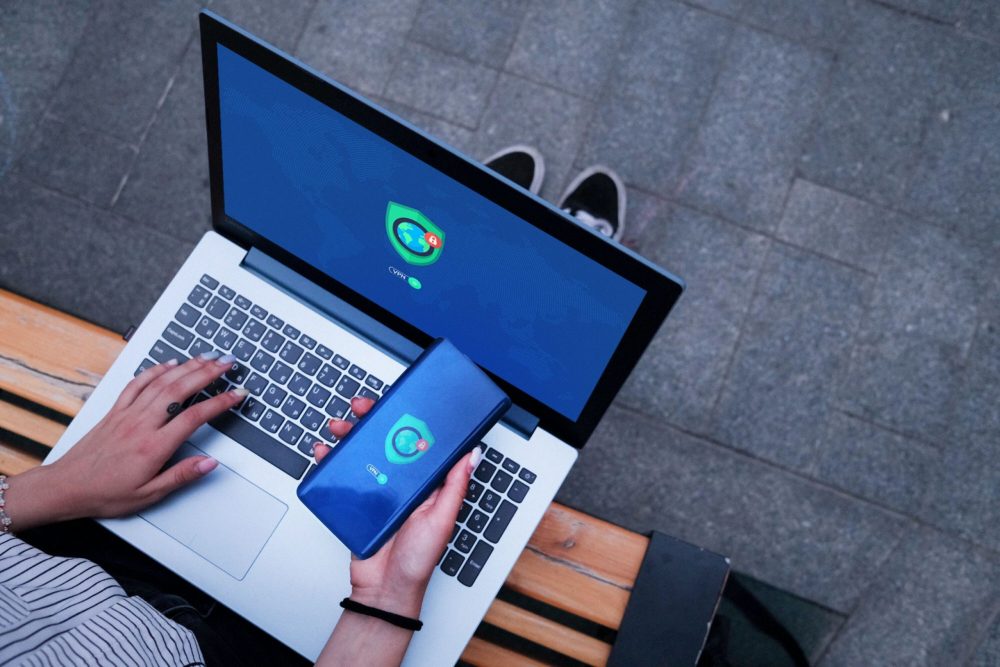If you’ve ever considered utilizing a virtual private network (VPN) to bolster the security of your network, you’ve likely pondered whether it can impact your internet speed. The answer to that question is yes, it can indeed slow down your internet connection. However, this effect can vary depending on several factors.
This article thoroughly explores these variables, ensuring that you are well-informed about the potential trade-off between speed and privacy. Perhaps you will not only not feel any slowdown, but will even experience an increase in speed.
Does VPN Reduce Internet Speed?
Yes, a VPN can slow down your internet speed somewhat. However, in some cases, it even increases speed. Will a VPN make my internet faster or slower? It all depends on several factors. One of the key factors influencing Internet speed with VPN is the quality of the VPN itself. If you have a good provider, they will minimize the negative impact. The same VeePN, with good reliability and security, practically does not affect the connection speed. Under certain conditions, it can even improve speed, including in the free trial version.
Provider Speed
If your ISP offers high speed, any reduction caused by a VPN may be less noticeable. Conversely, a slower ISP speed could make a VPN-induced slowdown more apparent, potentially hindering your online activities. In essence, a faster original connection increases the likelihood of smooth and efficient VPN usage.
VPN Protocol
The VPN protocol used also influences internet speed. VPNs can utilize different protocols, such as OpenVPN, PPTP, or L2TP/IPSec. Each protocol has its characteristics in terms of security, speed, and compatibility. Typically, VPNs give you the flexibility to choose the protocol based on your requirements for speed, privacy, streaming bandwidth, and more. Consequently, your choice of VPN protocol can affect your internet speed.
Server Quality
The quality and location of the VPN server also play a role. High-quality servers can handle data more efficiently, minimizing the potential speed drop when using a VPN. Additionally, the physical distance between you and the VPN server affects speed. The farther you are from the server, the longer it takes for data to travel back and forth.
Encryption
The level of encryption used in a VPN is vital for data security. Higher encryption levels provide better security but require more computational resources, potentially slowing down your internet speed. This impact is more noticeable during bandwidth-intensive tasks like streaming or gaming. However, some VPNs offer the option to choose the encryption level, allowing for a balance between speed and security based on your specific needs and data sensitivity.
Load
Additionally, the time of usage, particularly during peak or off-peak hours, can impact VPN performance. During peak usage times, when many people are online simultaneously, VPN servers can easily become overloaded, especially if they lack sufficient capacity to handle the surge. With more users connected to a single VPN server, the server’s resources are divided among a larger pool of users.
Can a VPN Speed Up the Internet?
When it comes to whether VPN improves gaming, the answer will depend on your situation. A VPN can provide security, bypass regional restrictions, and protect against hacker attacks. It can also improve internet speed under certain circumstances, these are described below.
Bandwidth Throttling
Your internet service provider (ISP) deliberately slows down your internet speed through a practice called bandwidth throttling or ISP throttling. The reasons vary, including managing congestion during peak times when more people are online and increasing ping times. Bandwidth-intensive activities like streaming, video calling, or online gaming often face frequent instances of bandwidth throttling.
This can be both frustrating and inconvenient, making your internet experience less enjoyable. However, VPNs can help overcome such situations.
Peering Agreements
If your ISP has inadequate peering agreements with other networks, a VPN can enhance your internet speed. Peering agreements are contracts between two networks that facilitate traffic exchange. When your ISP lacks these agreements, it can result in slow internet speeds. However, by masking the origin of your data, a VPN bypasses this issue. Other networks are unable to identify that the data originated from a network with subpar peering arrangements.
Does VPN Consume More Data?
When transferring files, a VPN encrypts them, resulting in some additional overhead. According to estimates, the encryption process adds around 10-15% more data usage.
The computation is quite simple. Let’s consider the scenario where you download a large HD movie file of 2GB. Over a regular public connection, the data usage would be precisely 2GB. However, when using a VPN that encrypts the data for you, the data usage increases. Since 2GB is equivalent to 2,048 MB of data, it means that you are technically transferring around 2,348 MB in total.
Conclusion
Using a VPN can effectively conceal your IP and online activity, but be cautious as it often results in decreased connection speeds. If your Internet connection is fast enough, then you will hardly notice the VPN. If your Internet is slow and your ISP is not slowing you down, then a VPN can significantly affect your speed. But much in this matter depends on the provider itself. If you use technically advanced services, like VeePN with its WireGuard protocol and powerful servers, then the slowdown, if any, will be minimal. But you will be able to ensure the security of your network, and this is worth it in 99.9% of cases.



